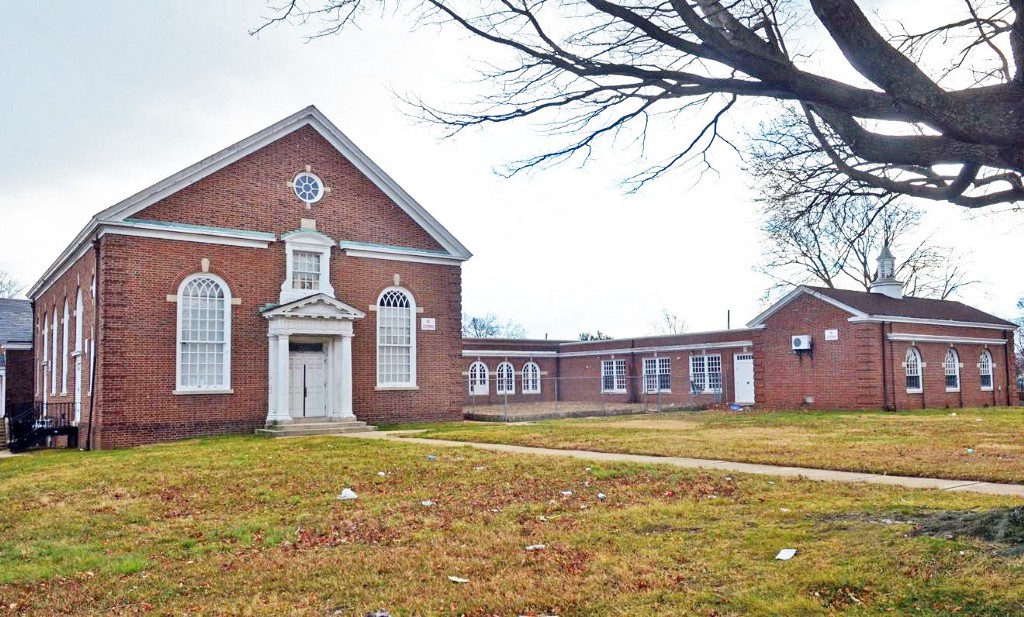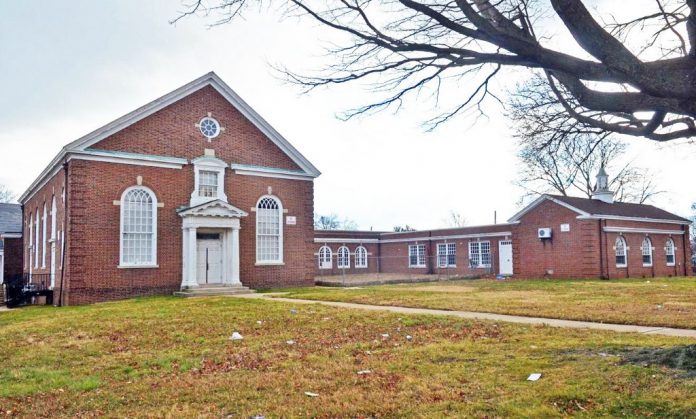The Philadelphia Historical Commission’s Committee on Historical Designation voted 5–0 to recommend Trinity Church, Oxford, be listed on the Philadelphia Register of Historic Places.

A Trinity Church, Oxford property housing an auditorium, gym, office and two classrooms is one step closer to being listed on the Philadelphia Register of Historic Places.
Last week, the Philadelphia Historical Commission’s Committee on Historical Designation voted 5–0 to recommend the listing.
The next big date in the process will be Oct. 13, when the historical commission will meet.
If the commission approves historical designation, Trinity Church, Oxford can appeal, citing a hardship.
The church property is at 6901 Rising Sun Ave. (at Longshore Avenue) in Lawndale.
State Rep. Jared Solomon (D-202nd dist.) and the Preservation Alliance of Greater Philadelphia are trying to preserve buildings that were the home of a day care and the former Gibbons Police Athletic League center, but have been vacant for two years.
Trinity Church, Oxford signed a lease with Royal Farms, a large convenience store that sells food and gasoline.
However, once Solomon and the Preservation Alliance submitted the nomination, the property became the jurisdiction of the historical commission. Thus, Royal Farms cannot seek permits for demolition.
The auditorium, gym, small classroom and office were built in 1928, with a large classroom added in 1963. Supporters of historic designation argue that they were built in the Colonial Revival architectural style of the 1920s, around the time the nation was celebrating its 150th birthday and Philadelphia was hosting a world’s fair.
“It has become a real standout,” said Paul Steinke, president of the Preservation Alliance and a native of nearby Burholme.
Opponents of Royal Farms note that there is a Wawa and a Sunoco at the same intersection.
Trinity Church, Oxford officials have said the more than 300-year-old Episcopal parish needs a long-term tenant such as Royal Farms because building maintenance costs are too high. The rents paid by longtime tenants PAL and the Oxford Child Care Center, which both moved out in 2015, were not enough to pay a monthly heating bill, let alone all of the property’s upkeep.
The parish was formed in 1698. The church was built in 1711, making it the second oldest in the city. The church and adjoining cemetery are on the Philadelphia Register of Historic Places
Trinity Church, Oxford argues that, because of a “hodge podge” of additions over the years, there is no historical or architectural significance to the other building. Without a deep-pocketed tenant such as Royal Farms, officials say, the church will close in two years.
The church position is backed by Debbie Klak, past president of the Historical Society of Frankford, the historian at All Saints’ Torresdale and a producer of The King’s Highway documentary. Klak labeled the quest for historical designation a “knee-jerk reaction.”
“I think it’s politically charged,” she told the committee.
Retired lawyer John Buffington almost always supports historical designation nominations, but not for Trinity Church, Oxford. He described the church as the “crown jewel” of the Northeast, but said no distinguished architects worked on the other building.
“It’s just another 1928 building,” he said.
Supporters of historical designation spoke up.
Matthew Jackson took part in PAL events and played soccer on the fields. He noted that church records show Trinity Church, Oxford fought a proposed gas station in 1952. He also contended that historical artifacts and unmarked graves could be found underground if Royal Farms or another developer is allowed to demolish the building.
Former state Rep. Mark Cohen, now a candidate for Common Pleas Court judge, tried to get the state to buy or lease the building, but said the church was not interested. Cohen added that the intersection does not need a third gas station.
Andrew Dalzell, chief of staff for Solomon (who was on his honeymoon), said his office will work with the church to find someone to sign a long-term lease to preserve the building. The way Dalzell sees it, historical designation and redevelopment can go hand in hand. He just doesn’t want a gas station that sells fried chicken, saying that can be found in “Anywhere, USA.”
In the end, the five members of the committee unanimously backed historical designation. They cited the building’s outstanding architecture and inventive, not cookie-cutter, design.
The committee ruled that Trinity Church, Oxford was making a false argument in suggesting the historical church building and cemetery would suffer if the other building was deemed historic. ••






